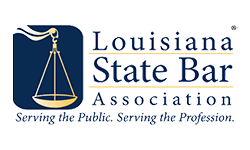Some of the busiest interstates in our country run through Baton Rouge, including I-10, I-12, and I-110. There are also U.S. Route 190 and U.S. Route 61 and Louisiana Highway 415 (LA-415), LA-1, LA-427, and more than a dozen others that run through or around our capital city. As you might imagine, with as many major arteries that abound in our city, they would only exist because we have a heavy flow of traffic of both cars and trucks in our area. Data published by Louisiana State University last year corroborates that inclination. It shows that Baton Rouge ranks fourth in the U.S. for the worst traffic.
With as bad of traffic as Baton Rouge has, the incident rates of auto accidents involving cars and trucks are high. While you may have had the misfortune of having become involved in a motor vehicle accident with another passenger car before, there’s less of a likelihood of you having found yourself entangled in a tractor-trailer crash. Therefore, if you find yourself in the latter, you may have difficulty understanding the nuances associated with it. Below, we’ll compare and contrast how trucking accidents are different from car accidents and detail steps you may want to take if you’re hurt in one of these.
How Car Crashes and Truck Accidents Are Similar
There are a few similarities between car and truck collisions, some of which include:
- Both types of crashes may occur under similar circumstances: From inclement weather affecting road conditions to driver error and different types of roadways, including surface streets or interstates, the different conditions or situations in which an 18-wheeler accident or passenger car collision may occur are the same.
- The same liability standards apply in each situation: Louisiana is an at-fault state, meaning anyone injured in a crash can file a claim with the party that struck them so long as they can establish that they breached their duty of care.
- A comparative fault doctrine applies in any collision case: Louisiana subscribes to the comparative fault doctrine in negligence cases, meaning liability will be proportionately distributed to any parties deemed to be at fault for a crash.
- There can be multiple parties held liable for the crash: When it comes to truck accidents, the tractor-trailer operator, their employer, the party that loaded the truck, and others can be deemed responsible for it. While most people assume drivers are the only ones who could plausibly be responsible for causing car-on-car crashes, that’s not necessarily the case. One detail that car and truck accidents share in common is that they can be caused by a driver or can stem from manufacturing defects or mechanical issues, both of which may be attributable to someone else’s negligence other than the motorist’s or trucker’s.
How Car Wrecks and Truck Collisions Differ
There are a few notable differences between tractor-trailer crashes and passenger car accidents, some of which include:
- Truckers have commercial driver’s licenses: Truck drivers must have the same passenger car driver’s license that any other driver is required to have and also undertake the necessary coursework and pass all appropriate practical training requirements and tests to secure a commercial driver’s license.
- Truckers must abide by additional regulations compared to other drivers: Tractor-trailer operators must pass a Department of Transportation (DOT) physical, abide by hours of service rules, perform pre-trip inspections, and abide by many other rules before being allowed to take to the road or once on it. These regulations go above and beyond what your standard passenger car operator must do.
- The notable difference in the size of vehicles: Data compiled by the Federal Motor Carrier Safety Administration (FMCSA) suggests that semi-trucks can weigh as much as 30 times more than the average passenger vehicle. This means if a car and truck collide, the potential for catastrophic injuries is particularly high.
- Blind spots are remarkably different between cars and trucks: Truckers cannot see a certain anyone or anything that comes within a certain proximity in front of, behind, or for certain feet to either side of the tractor-trailer. The Louisiana Commercial Driver’s License Manual refers to this as a “no zone” into which no vehicle should enter to ensure their visibility when sharing the road with 18-wheelers to avoid a crash. Cars’ blind spots are generally limited to areas you can’t see when using our vehicle’s mirrors, which are far fewer than that of a big rig.
- Braking in an 18-wheeler takes longer than it does in a passenger car: Speed, road conditions, and the weight of the load the trucker is carrying can affect how quickly they can reach a full stop once they apply their brakes. In contrast, it can take passenger car drivers a lot less time to come to a complete stop.
- Mandatory auto insurance minimums differ: Passenger car drivers are only required to have a policy that offers $15,000 in bodily injury coverage for one person, $30,000 for bodily injury per accident, and $25,000 in property damage. However, the state and federal government mandates truckers’ insurance coverage limits, and they must have at least $300,000 in coverage. The coverage limits can increase to as high as $5 million the heavier the truck or if it carries potentially hazardous material.
There are likely many other distinctions that differentiate between passenger cars and trucks. Those, along with the aforementioned, can not only lead to a crash occurring but also affect liability determinations and potential settlements victims can secure in their injury cases.
Benefits Of Working With Bianca | Matkins if You’ve Been Hurt in a Truck Crash
When you’re hurt in an accident, whether we’re talking about a car wreck or tractor-trailer collision, there’s always the potential for you to suffer injuries. However, semi-truck accidents tend to result in more catastrophic injuries than other types of crashes. There’s also an added layer of complexity to sorting out who to file a claim against and for how much when a tractor-trailer is involved.
When you work with our truck accident lawyers, you can rest assured that we have the experience necessary to determine if you have a strong case and, if so, to help shepherd you through the insurance claims process every step of the way, including negotiating a fair settlement in your case.
We cannot get to work for you without first sitting down and having a conversation about the events that led up to your accident’s occurrence, how injured you are, and the steps you’ve taken since it happened. So, give us a call or email us to set up an initial free consultation with an attorney in our Baton Rouge office. Our personal injury law firm is located just off of I-10 on Summa Avenue, near Our Lady of the Lake Regional Medical Center and a short drive from the Mall of Louisiana.










